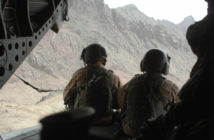Iraq is facing political turmoil after security forces loyal to Nouri Maliki took up strategic positions around Baghdad after he criticised President Fuad Masum in a press conferences and demanded to be appointed as prime minister for a third term.
The Iraqi parliament failed to agree on a new coalition government under Maliki’s leadership by the Sunday deadline, but the two-term prime minister maintains that he should remain in the role despite heavy criticism over his leadership.
Maliki has been criticised for his sectarian policies fuelling the Islamic State insurgency in the north of the country, where some disenfranchised members of the Sunni minority have welcomed the Islamists as an alternative to his rule of discrimination. Sunnis, Kurds, and many Shia have called for his resignation in order to heal some of the sectarian divides that look to break up the country.
As the pro-Maliki security forces swept onto the streets, many believed that a coup was underway, but it appears that their role may have been a power play and demonstration of force by Maliki, to strengthen his hand in political discussions on his future.
The US backed President Masum, and Secretary of State John Kerry warned:
“The government formation process is critical in terms of sustaining stability and calm in Iraq, and our hope is that Mr Maliki will not stir those waters.”
Earlier today there was confusion after it was reported by state media that a top Iraqi court ruled that Maliki’s State of Law bloc was the largest in parliament, which would have boosted Maliki’s chances of remaining prime minister.
However, court spokesman Abdelsattar Bereqdar told BBC Arabic that it had asked President Masum to choose the bloc with the largest number of MPs without naming any individual bloc.
Amid the turmoil, the umbrella group of Shia parties, the Shia National Alliance, has voted 130-40 for deputy parliament speaker Haider al-Abadi to become the next prime minister and not Maliki.



